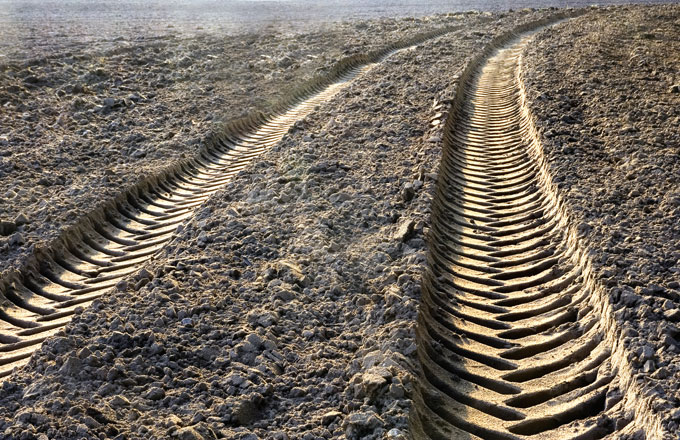The 2021 Climate Action Plan: a closer look

5 November 2021
The Climate Action Plan landed on our laps yesterday. You’ve probably seen a fair few headlines about it – it’s a very big deal.
This 2021 edition is the roadmap for how the Government envisions Ireland will halve its emissions by the end of the decade and it covers a number of sectors – including our biggest contributors.
We’re due to receive more information over the next few weeks and months about the Plan and what it’s set to lead to – but with what we have so far we wanted to dig in and see what’s new for some sectors when compared to the Plan’s 2019 predecessor.
And given the fact more is set to be revealed in due course, this is a preliminary (read: not exhaustive) first go from us – we’ll of course be following any and all developments around the Plan.
Okay, here we go.
Agriculture
Each sector has been given a range for its decarbonisation target for the time being – and for agriculture, our largest emitting sector, that came in at between a 22 to 30 per cent decarbonisation goalpost for the end of the decade.
There’s no mention of reducing the number of cattle in Ireland in the measures laid out yesterday. Instead the Plan aims to reduce chemical nitrogen fertiliser and improve animal breeding and feeding, to name a few actions, in order to land somewhere within this range.
The Plan also aims to increase organic farming by fivefold and to “review” diversification options for farmers, including energy production and agroforestry.
The target is low when compared to what is required of other sectors and the the risk here is that having a range at all, “might give rise to the belief that a sector can do a lower figure, which is not going to add up to what’s required by 2030,” according to climate policy researcher and lecturer at Dublin City University Sadhbh O’Neill.
Ms. O’Neill also highlighted to The Green News that no mention of restraining Ireland’s dairy herd numbers in the Plan means that farmers won’t be incentivised to move to organic farming, which the Government hopes to see grow considerably over the next ten years.
“It’s all wishful thinking that one thing will lead to another,” she concluded.
Transport
Another prominent source of Irish emissions – transport – is set to see its contribution decline by between 42 and 50 per cent by 2030.
The Government has held on to its 2019 electric vehicle (EV) target of around one million electric vehicles on the road by the end of the decade, which observers have long noted is a sky-high target given the current number of electric vehicles in use across the country.
Relying on EVs in reducing transport emissions is a “risky and potentially costly gamble” according to Tadhg O’ Mahony of the Finland Future Research Centre and stressed that the one million target for the mode of transport would be “difficult to achieve”.
Meeting it would largely depend on the supply of minerals to make the batteries to be constantly available worldwide, which is not guaranteed, he told the Joint Oireachtas Committee on Climate Action earlier this year.
It also wouldn’t solve issues of traffic congestion and accidents and the ongoing negative impacts of particulate matter pollution on public health as electric vehicles cannot deal with the harmful pollutant completely, according to his testimony.
Electric vehicles aside, the Government does appear committed to improving journeys taken by public transport, cycling and walking in this Plan as it set itself the goal of seeing 500,000 journeys taken by one of the aforementioned means.
Electricity
For our electricity generation, we’re seeing the biggest emission target range, that being a reduction of anywhere between 62 to 81 per cent by 2030.
The Government intends to get there by ramping up renewable energy supply across the board, which they hope will be met with the help of up to 5 gigawatts of offshore wind power by the of the decade. Other means to hit a mark within this range include microgenerated energy and a completed phase-out of coal and peat-fired electricity.
According to Associate Professor at the DCU School of Engineering Barry McMullin, due to the delay in climate action over the past few decades, the range for the sector is “extremely challenging and it’s probably not enough”.
However, he told The Green News that the reductions are achievable over the next ten years, but it will also require Ireland limiting and constraining its energy use.
“The problem for me in these ranges is how they’re going to interact. It looks like almost every sector would have to deliver reductions at the top of every range to meet the aggregate target (of 51 per cent by 2030). If that’s the case, there’s no point in ranges. If everything has to hit the maximum number, then it’s not a meaningful range,” Prof McMullin said.
As you’ve probably gathered from the experts we spoke to in the immediate aftermath of this Plan, the numbers within these decarbonisation ranges came up repeatedly.
Intergovernmental Panel on Climate Change (IPCC) scientist John Sweeney also stressed to The Green News that the very top figure of these ranges would need to be met in each case if Ireland is to meet its newly set out carbon budgets.
“Any slippage from the very maximum figure would mean non-compliance with the law,” he added, speaking in reference to the revised Climate Bill published earlier this year.
The exact target within these ranges for each sector will be set over the coming weeks and months, and we’ll be keeping our eyes peeled for them and will bring you news and analysis on them as soon as they’re published.
[x_author title=”About the Author”]







